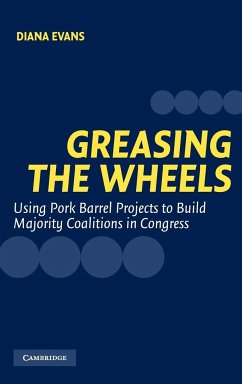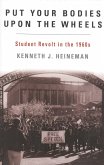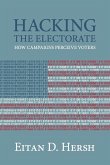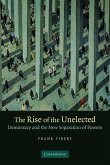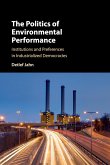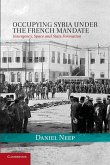Short description/annotation
This book examines pork barrel projects and their relation to broad-based national legislation.
Main description
Pork barrel projects would surely rank near the top of most observers' lists of Congress's most widely despised products. Yet, political leaders in Congress and the President often trade pork for votes to pass legislation that serves broad national purposes, giving members of Congress pork barrel projects in return for their votes on general interest legislation. It is a practice that succeeds at a cost, but it is a cost that many political leaders are willing to pay in order to enact the broader public policies that they favor. There is an irony in this: pork barrel benefits, the most reviled of Congress's legislative products, are used by policy coalition leaders to produce the type of policy that is most admired - general interest legislation. This book makes the case that buying votes with pork is one way in which Congress solves its well-known collective action problem.
Table of contents:
1. Introduction; 2. Pork barrel politics and general interest legislation; 3. Who calls the shots(?)33; The allocation of pork barrel projects; 4. Highway demonstration projects and voting on the Federal Highway Program; 5. Presidential bargaining with Congress and the NAFTA bazaar; 6. Pork barreling in the Senate: do both parties do it(?)33;; 7. Conclusions.
Hinweis: Dieser Artikel kann nur an eine deutsche Lieferadresse ausgeliefert werden.
This book examines pork barrel projects and their relation to broad-based national legislation.
Main description
Pork barrel projects would surely rank near the top of most observers' lists of Congress's most widely despised products. Yet, political leaders in Congress and the President often trade pork for votes to pass legislation that serves broad national purposes, giving members of Congress pork barrel projects in return for their votes on general interest legislation. It is a practice that succeeds at a cost, but it is a cost that many political leaders are willing to pay in order to enact the broader public policies that they favor. There is an irony in this: pork barrel benefits, the most reviled of Congress's legislative products, are used by policy coalition leaders to produce the type of policy that is most admired - general interest legislation. This book makes the case that buying votes with pork is one way in which Congress solves its well-known collective action problem.
Table of contents:
1. Introduction; 2. Pork barrel politics and general interest legislation; 3. Who calls the shots(?)33; The allocation of pork barrel projects; 4. Highway demonstration projects and voting on the Federal Highway Program; 5. Presidential bargaining with Congress and the NAFTA bazaar; 6. Pork barreling in the Senate: do both parties do it(?)33;; 7. Conclusions.
Hinweis: Dieser Artikel kann nur an eine deutsche Lieferadresse ausgeliefert werden.

